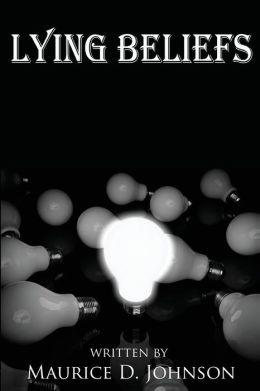Title: Lying Beliefs
Author: Maurice D. Johnson
Publisher: Maurice D. Johnson
ISBN-13: 978-0615995540
Pages: 184, Paperback
Genre: Spiritual, Psychological
Reviewed by: Jason Lulos, Pacific Book Review
Book Review
Lying Beliefs is a spiritual and psychological analysis of the pitfalls of the subconscious. The theoretical aim of the book is based on a kind of New Age mysticism that synthesizes spirituality, psychology, and scientific theories on things such as solar energy. These syntheses are illustrated through the use of analogies which stretch scientific interpretations. Ergo, the skeptic will be skeptical and the analogical will be intrigued by the connections. Overall, the book is a thoughtful self-improvement book aimed at overcoming the selfish habits learned, then forgotten as they are embedded in the subconscious. Johnson’s goal is conscious awareness, similar to a Buddhist practice of being in tune individually, socially and spiritually.
Johnson suggests the notion that a person’s self or ego – as it is linked to egotism and selfishness is like an avatar or homunculus directing and dictating the subconscious. That self(ish) driven subconscious is formed of man-made thoughts, often emerging from self-serving and sinful impulses; embedded in the subconscious, the person becomes unaware of their effects. Therefore, one who continues to act selfishly or a zombie-like materialist is largely or completely unaware that he or she are behaving so.
Johnson explains early on that the book is based on science and Christian ethics. However, in the spirit of skepticism towards cultural constructs, he does not endorse any religious doctrine or narrative. Thus, a more conscious “you” will be a more spiritually connected and pure “you” as opposed to the self(ish) zombie driven by the sinful habits of the subconscious. The goal is to become more consciously aware of one’s thoughts and actions. The first step is discovering the subconscious habits which have conditioned us to behave in ways that are contrary to our pure and or selfless inclinations. Hence the title “lying” beliefs which implies falsity of these subconscious habits as well as their stealthy position of being hidden – lying – in the subconscious.
From a philosophical standpoint, the interesting factor of Johnson’s thinking is similar to phenomenology: that reality is determined by consciousness and or the naughty subconscious. So, being driven by a sinful subconscious leads to experiencing a false self-serving reality. The opposing goal is to be more consciously aware of subconscious habits in order to live a more purposeful and direct reality.
Part of Johnson’s program is overcoming subconscious fears in order to consciously love. Just as the pure you should shed the shackles of subconscious fears, the pure individual must also get past the man-made constructions of religion in order to have a more pure understanding of God. Thus, inasmuch as Biblical stories serve to encourage moral behavior, they function more to sustain religion than a pure notion of God. Johnson is all about distrusting man-made concepts of the metaphysical, openly criticizes Biblical narratives and cultural constructions in general.
Following his critique of selfishness, Johnson employs a notion of God as an essential consciousness, not a “Him” or a self-defined God. This illustration is consistent with his argument consistent: bridging the psychological and the spiritual. At times, this is an odd bridging of science and spirituality, i. e. equating consciousness and oxygen and the ‘divine’ energy of the sun, noting the efficacious puns of sole, soul, solar, and so on. A New Age enthusiast will find the book intriguing but the skeptic might scoff at the scientific and spiritual conflations and analogies. In any case, the analogies are useful in describing a theoretical strategy of becoming more aware, more selfless, and more able to find connections fittingly, the function of analogies between the psychological and the spiritual.


